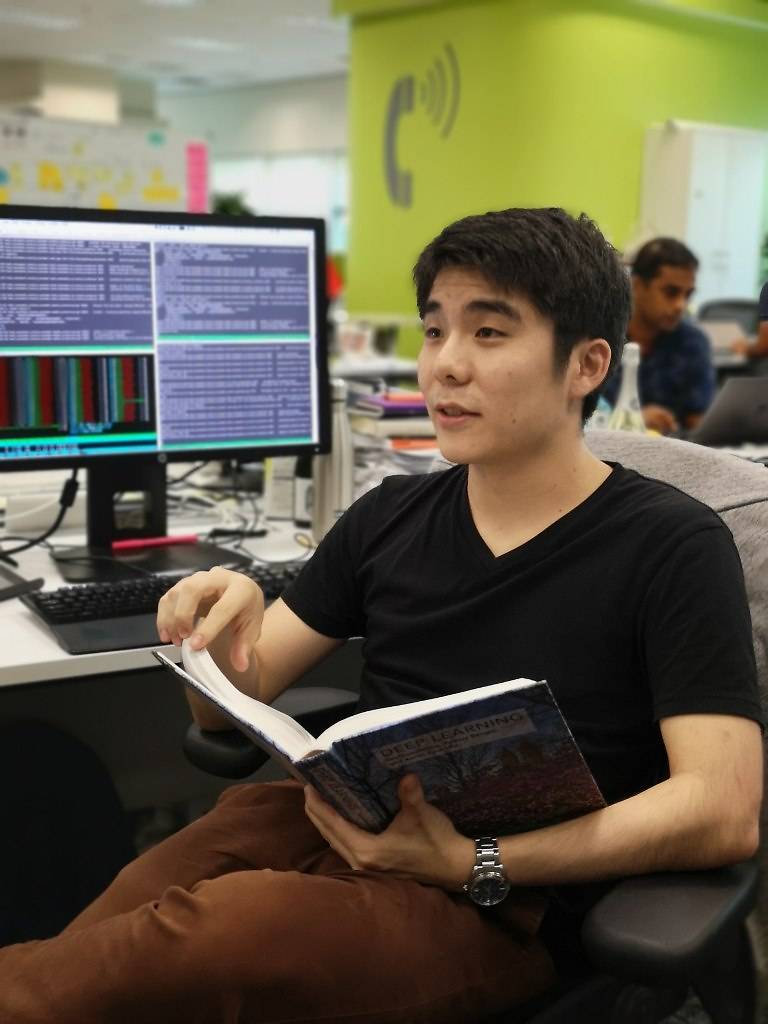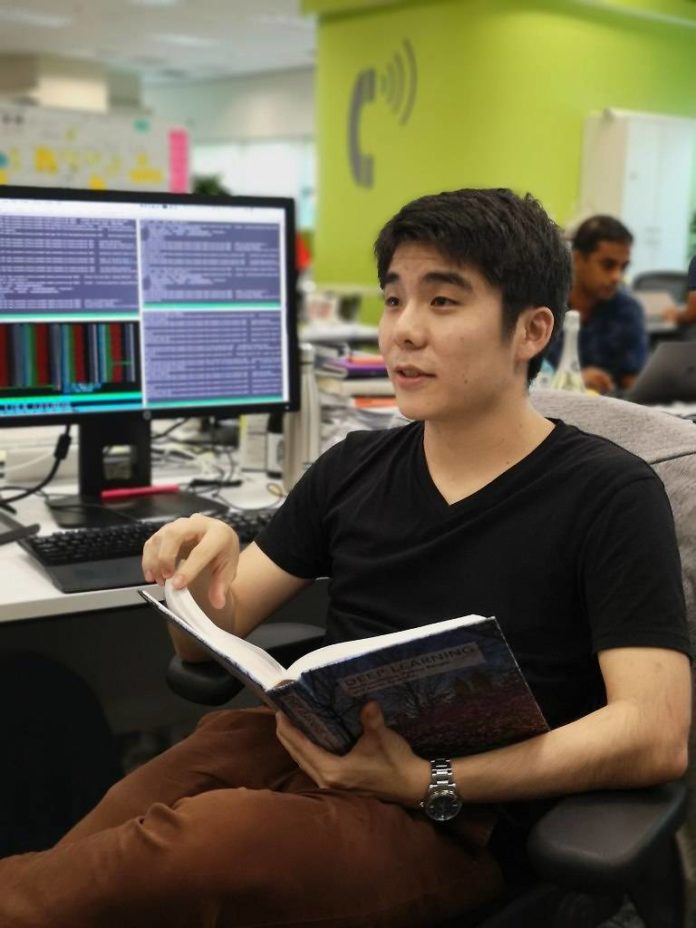SINGAPORE: For Mr Sean Saito, stepping into technology seemed like serendipity.
The 24-year-old had his first serious encounter with a tech problem in 2013, when the Internet connection at his home in Japan failed. No one in the family knew how to get it back up again. Even though he knew nothing as well, he was expected, as the oldest son, to troubleshoot the issue.
He looked up the wireless router’s manual for answers, which includes turning the device off and on again. When that failed, he flipped through the manual again and was instructed to “open command prompt” on his computer and key in some computer commands.
“After two commands, the Internet worked again!” Mr Saito recounted to Channel NewsAsia in a recent interview.
“My mum and younger brother were amazed at what I did,” he said, adding with a laugh that there was some “hero worship” at play.
That same year, he travelled to Singapore to start his undergraduate studies in computer science at Yale-NUS College, influenced in part by that incident at home.
“I never touched programming until then,” he shared.
READ: A world ruled by robots? This artificial intelligence expert paints a different reality
He has flourished since. He founded a coding academy Code Gakko for students while finishing his degree, and holds the distinction of being the first Bachelor’s degree hire at German software giant SAP for the position of a machine learning (ML) developer.

Mr Sean Saito is the first Bachelors-level hire for his role as machine learning developer at software giant SAP. (Photo: SAP)
HUMANITIES MAKE SENSE OF TECHNOLOGY
Asked what helped him hit the ground running after graduating, Mr Saito said that the liberal arts foundation at Yale-NUS gave him a different perspective of programming and artificial intelligence (AI).
One example of this was when he took philosophy and was exposed to Scottish philosopher David Hume’s theory of empiricism. He explained how he took it to mean one derives the knowledge one does through one’s experiences and this, in his view, is similar to machine learning.
“It’s kind of like machine learning and how they learn through making mistakes,” he elaborated.
It is this interdisciplinary mindset that Mr Saito said was helpful and encouraged others to adopt, and not just focus on the technical side of computer science.
Artificial intelligence and machine learning have been key themes in this year’s technology landscape, not least in Singapore where the Government has been pushing for its adoption and building up the necessary talent pool.
READ: 10,000 in Singapore to be taught AI basics for free
All ministries and related agencies are, in fact, required to have at least one project using AI for service delivery or policy making by 2023 – in key performance indicators (KPIs) spelt out in the Digital Government Blueprint released in June this year.
BASICS ARE BEST
Mr Saito’s SAP colleague, Mr Benjamin Yap, came through a more conventional route, taking up a computer engineering degree at the National University of Singapore (NUS), graduating in 2010.
For him, the basic grounding he received in areas such as writing good code and adopting good documentation habits was invaluable as he stepped into the working arena.
“These are very important … as we don’t work in silos and having good documentation allows me to better communicate my work to others,” Mr Yap explained, adding that these fundamentals don’t change even as tech trends like AI and machine learning evolve.
Mr Benjamin Yap says the right attitude, not just aptitude, needs to be applied when in an internship to get the most out of the experience. (Photo: SAP)
The 29-year-old research associate highlighted the importance of participating in internships and, more importantly, having a good, proactive attitude during these stints.
Mr Yap did his internship in his third year of undergraduate studies and was exposed to general programming and project management work. These experiences, he said, helped prepare him for the working world.
Mr Saito echoed the point, saying he had great mentors when he was interning while studying and the experience allowed him to work out what he learned in theory.
Paying it forward, the ML developer said he is currently mentoring a Nanyang Polytechnic student who is there for six months, and involving the student in real-world applications like learning the enterprise resource planning matrix using AI.
SCHOOLS CLIMB ONBOARD
Universities here, on their part, are not ignorant of the changing needs these students face as the push for AI and ML talent gathers pace.
READ: The rise of artificial intelligence and how lives will forever be changed
NUS School of Computing’s vice dean Professor Sanjay Jain told Channel NewsAsia in an email that all its undergrads are required to read some General Education modules in humanities and social sciences, and those interested in literature and philosophy can also take related modules as unrestricted electives.
Another local varsity, the Singapore Management University (SMU), said separately that its new core curriculum, which will be implemented from Academic Year 2019-2020, will comprise 12 course units grouped under three learning pillars: Capabilities, Communities and Civilisations.
The Civilisations pillar, for instance, aims to immerse students in fundamental debates such as happiness and suffering and wealth and poverty “to encourage critical dialogue between multiple and competing traditions of thought and problem-solving”, the spokesperson said.
As for placing more emphasis on internships, SMU said it was the first local university to make internships compulsory and all its students complete at least one 10-week stint before graduating. Many School of Information Systems (SIS) students go for more than one internship, it added.
NUS’ Prof Sanjay pointed out that all School of Computing undergraduates are required to complete a six-month internship programme, but are also open to taking up opportunities to work with industry players.
One example is the Orbital Programme, which he said is a “self-directed, independent work course” allowing students to pick up software development skills and work with industry mentors to develop their projects.
These efforts by institutes of higher learning (IHLs) to partner industry players will be crucial going forward, as companies continue to vie for available talent spurred by the increasing use of AI across the enterprise.
Mr Steve Van Wyk, vice president and head of analytics at SAP Asia-Pacific, said it is necessary to stoke the development cycle for AI and ML professionals.
“Without these new entrants, we are going to have troubles delivering projects to our clients … and our clients will have trouble delivering their own projects,” he said.
Research firm Gartner had previously forecasted that AI will create 2.3 million jobs in 2020, while eliminating 1.8 million. It is in this state of disruption that building up a sustainable AI talent pipeline appears to be Singapore’s best bet to keep it ahead of the tech curve.





